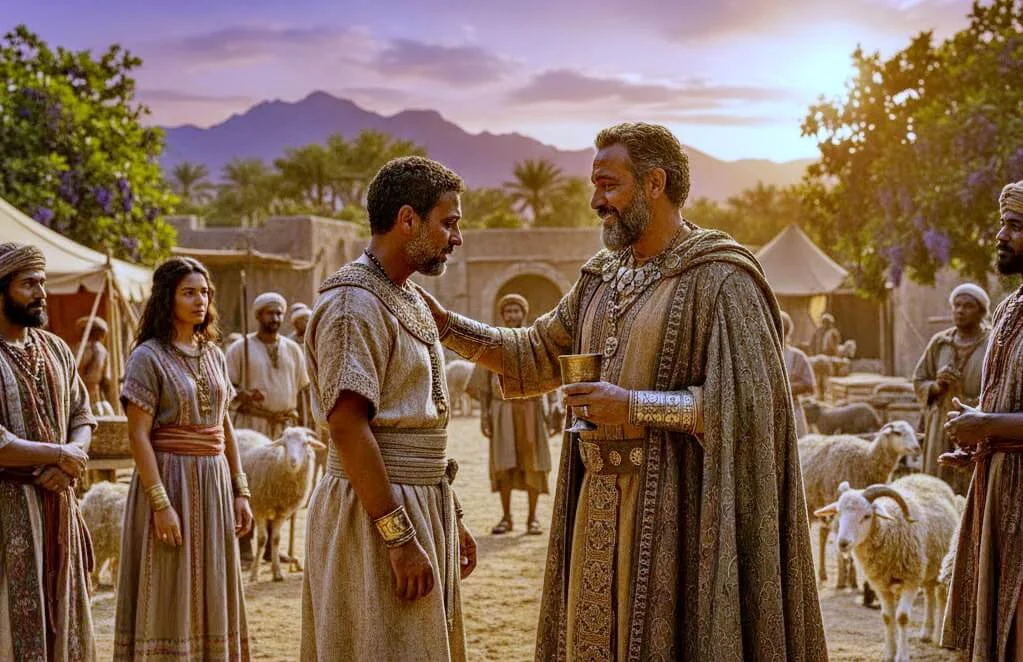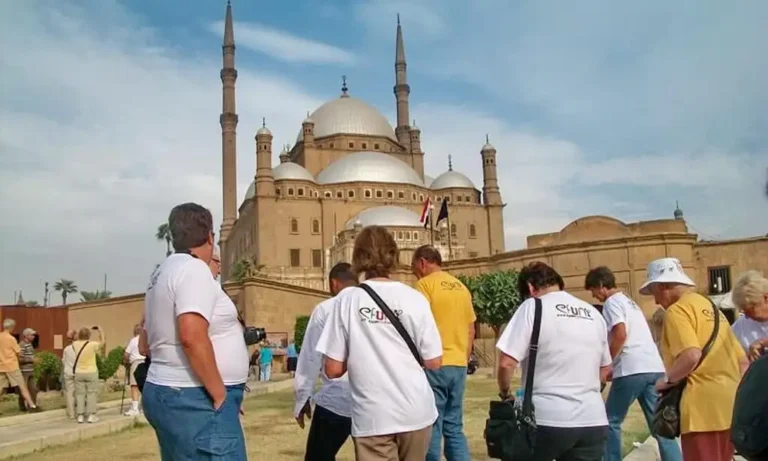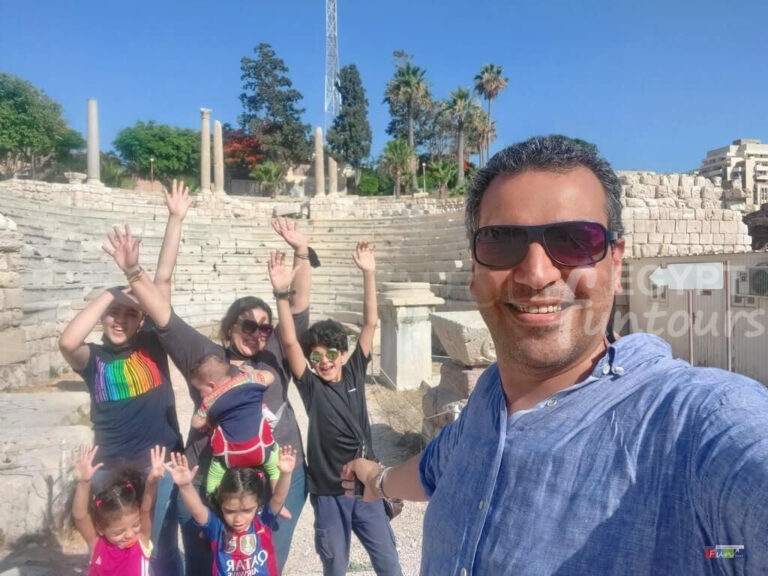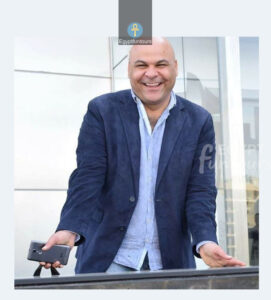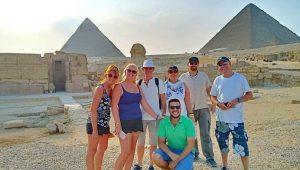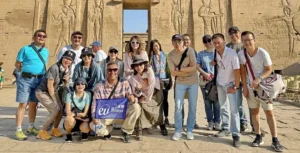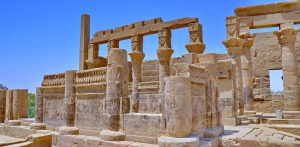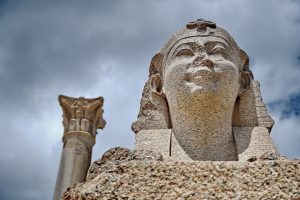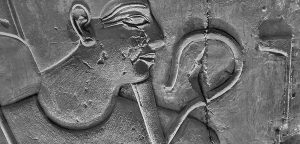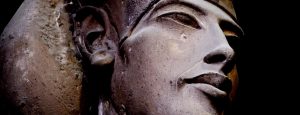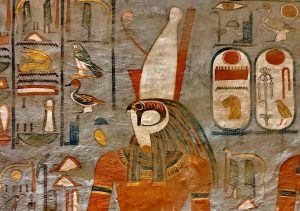Full English Translation of the Story of Sinuhe

This translation is based on the authoritative work of scholars like Miriam Lichtheim and R.B. Parkinson. It preserves the poetic style and dignity of the original Egyptian text.
(The Story of Sinuhe: Narrative Begins)
The hereditary prince and count, treasurer of the King of Lower Egypt, Sole Companion, administrator of the domains of the sovereign in the lands of the Asiatics, true and beloved acquaintance of the king, the courtier Sinuhe, he says:
I was a courtier who followed his lord, a servant of the royal chambers and of the hereditary princess, the greatly praised, the Royal Wife of Senusret in Khenem-isut, the Royal Daughter of Amenemhat in Qanefru, Nefru the revered.
In year 30, third month of the Inundation season, day 7, the god ascended to his horizon. The King of Upper and Lower Egypt, Sehetepibre, he flew to heaven and united with the sun-disc, the divine flesh mingling with its creator. The residence was in silence, hearts were in mourning, the Great Gates were sealed, the courtiers were head-on-knee, and the people grieved.
Now His Majesty had sent out an army to the land of the Libyans, with his eldest son as its commander, the Good God, Senusret. He had been sent to strike the foreign lands and to punish those among the Tjehenu. Now he was returning, bringing back living captives of the Tjehenu and all kinds of limitless cattle.
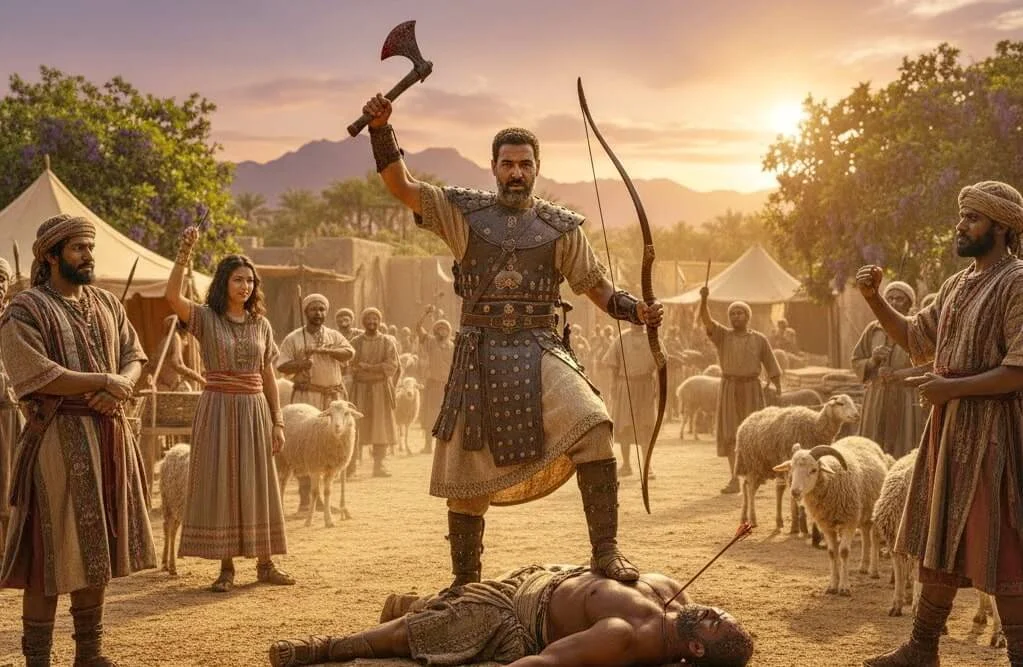
The Companions of the Court sent to the western border to inform the king’s son of the event that had occurred at the royal audience hall. The messengers found him on the road; they reached him at the time of evening. Not a moment did he delay. The falcon flew with his followers, without informing his army. But a message had also been sent to the royal children who were with him in this army. They summoned one of them. And so, while I was standing there, I heard his voice as he spoke, as I was a little way off.
My heart became confused, my arms spread apart, and trembling fell upon all my limbs. I removed myself in leaps and bounds to find a place to hide. Placed myself between two bushes in order to separate myself from the beaten path. Set out southward. I did not plan to reach the residence, for I thought strife would erupt, and I did not expect to live after him.
Story of Sinuhe: The Flight

I crossed the region of Maaty near the Sycamore, and I reached the Isle of Sneferu. I spent the day there at the edge of the fields and started out again at dawn. Then, met a man standing in my path; he respected me, but he was afraid. By suppertime, I drew near to “Cattle-Quay.” I crossed the river in a rudderless barge, by the force of the west wind. Passed to the east of the quarry, above the region of the Lady of the Red Mountain. Gave my feet to the northern path and reached the Walls of the Ruler, which were made to repel the Asiatics and to crush the Sand-farers. Took a crouching position in a bush for fear of being seen by the guard on duty upon the wall.
I set out from there at night. At dawn, I reached Peten. I stopped at the island of Kem-Wer. An attack of thirst overtook me. I was parched, my throat was dry. I said, “This is the taste of death.” Then I lifted up my heart and collected my body. I heard the sound of the lowing of cattle, I saw Asiatics. One of their leaders, who had once been in Egypt, recognized me. He gave me water. He boiled milk for me. I went with him to his tribe. What they did for me was good.
Land gave me to land. I set out for Byblos; I drew near to Qedem. I spent a year and a half there. Ammunenshi, the ruler of Upper Retjenu, took me and said to me: “You will be happy with me; you will hear the language of Egypt.” He said this because he knew my character and had heard of my wisdom; the Egyptians who were there with him had testified on my behalf.
Story of Sinuhe: Life in Exile

He said to me: “Why have you come to this place? Has something happened at the residence?” I said to him: “King Sehetepibre has gone to his horizon, and no one knows what may happen because of it.” But I spoke in half-truths, saying: “I was returning from a campaign to the land of the Libyans when it was reported to me. My mind became faint, my heart was no longer in my body. It carried me away on the paths of the wilderness. I was not accused, no one had spat in my face. I had not heard a slander. My name was not heard in the mouth of the herald. I do not know what brought me to this country. It was like the plan of a god.”
Then he said to me: “How will that land be without him, that beneficent god, the fear of whom used to pervade the foreign lands like Sekhmet in a year of plague?” I said to him, answering him: “Indeed, his son has entered the palace, having taken the inheritance of his father. He is a god without peer. No other has existed before him. He is a master of wisdom, excellent in plans, effective in decrees. […] His army, which he leads, rejoices! He is a smiter of foreign lands. He binds up the fallen and smashes the skull. One cannot stand near him. He is a swift archer, a mighty fighter. He is a king who has been conquering since birth, and no one has ever equaled him.”
That King gave me his eldest daughter in marriage and gave me a portion of his land, from the best of what he had, on the border with another country. It was a good land, called Yaa. Figs were in it, and grapes. It had more wine than water. Plentiful was its honey, abundant its olives. Every fruit was on its trees. Barley was there, and emmer, and limitless cattle of all kinds.
Great, too, was that which accrued to me as a result of the love of me. He made me ruler of a tribe in the best of his country. They made bread for me as daily fare and provided wine as a daily provision and served me cooked meat and roasted fowl, in addition to the wild beasts of the desert that they hunted and laid before me, and the catch of my own hounds. They also made me many desserts and used milk in every kind of cooking.
I spent many years, and my children grew up to be strong men, each one controlling his own tribe. The messenger who went north or south to the residence stayed with me. I made all travelers stay and gave water to the thirsty. I put the lost back on the path and rescued the plundered. When the Asiatics became so bold as to oppose the rulers of the foreign lands, I advised their movements.
This ruler of Retjenu had me spend many years as commander of his army. Every foreign land against which I went forth, when I had made my attack on it, was driven from its pastures and its wells. I plundered its cattle, carried off its inhabitants, took away their food, and slew people in it by my strong arm, by my bow, by my movements, and by my excellent plans. I found favor in his heart. He loved me, he recognized my valor, and he placed me at the head of his children.
A hero of Retjenu came to challenge me in my own camp. He was a champion without peer; he had subdued the entire region. He said he would fight with me; he planned to plunder me; he intended to seize my cattle, by the counsel of his tribe. That ruler, Ammunenshi, discussed it with me, and I said: “I do not know him. I am no ally of his. […] Does a humble man win love when he is a vassal? I will fight him and shall seize his possessions. I shall take his weapons.”
At night, I strung my bow and sorted my arrows, I practiced with my dagger and I polished my weapons. At dawn, the land of Retjenu came. It had stirred up its tribes, it had assembled the countries of a half of it, it had thought only of this fight. Then he came toward me. I stood my ground, and he passed by me. When his weapons had all been discharged, I made his arrows pass by me, uselessly. As he charged me, I shot him, my arrow sticking in his neck. He cried out and fell on his face. I finished him with his own axe.
Gave my cry of victory upon his back, while every Asiatic roared. I gave praise to Montu, while his people mourned for him. This ruler Ammunenshi took me into his embrace. Then I carried off his goods, I plundered his cattle. What he had planned to do to me, I did to him. I took what was in his tent, I stripped his camp and became great thereby. I became rich in possessions, I became abundant in cattle.
Longing for Home: Story of Sinuhe

But now, see, a god who had decreed this flight has now shown mercy and brought me back to the place from which he led me! For today, my heart is glad!
So now, let the god be gracious, who ordained this flight. May he bring me to the residence! Perhaps he will grant that my body may be where I was born! What is more important than that my corpse be buried in the land where I was born? Come to my aid! May a happy event occur. May the god grant me peace.
The Royal Decree: Story of Sinuhe

A copy of the decree which was brought to this servant concerning his return to Egypt:
“The Horus: Ankh-mesut; the Two Ladies: Ankh-mesut; the King of Upper and Lower Egypt: Kheperkare; the Son of Re: Senusret, may he live forever and ever! A royal decree to the courtier Sinuhe. Behold, this decree of the King is brought to you to inform you. That you have traversed the foreign lands, going from Qedem to Retjenu, land giving you to land, by the counsel of your own heart—what had you done that one should act against you? You had not cursed, that your speech should be reproved. You had not spoken against the counsel of the nobles, that your words should be rejected. This plan, it carried away your heart. It was not in my heart against you.
This your heaven [the Queen], who is in the palace, is prosperous and flourishing today. Her head is covered with the royalty of the land. Her children are in the audience chamber. Let you store up riches which they give you; live from their provisions. Come back to Egypt! See the residence in which you grew up! Kiss the earth at the Great Gates, join the Companions. For today you have begun to grow old. You have lost your virility. Think of the day of burial, the passing to a state of reverence. We will assign you a night with oils and wrappings from the hand of the goddess Tait. We will conduct your funeral procession on the day of interment and provide a mummy-case of gold with a head of lapis lazuli.
The sky will be above you as we place you in the hearse, with oxen drawing you and singers going before you. The Muu dancers will perform at the door of your tomb. We will recite the offering-list for you and make sacrifices at the door of your offering-chapel. Craftsmen will build your pillars of white stone in the midst of the tombs of the royal children.
You will not die in a foreign land. Asiatics will not escort you. We shall not place you in a sheepskin when we make your coffin. This is too long to be roaming the earth! Think of your corpse, and return!”
(The Return to Court)

This decree reached me as I stood in the midst of my tribe. It was read to me. I threw myself on my belly and touched the dust, I scattered it on my hair and roamed my camp rejoicing, saying: “How can such things be done for a servant whom his heart led astray to alien lands?” Truly, good is the kindness that saves me from death! Your spirit will allow me to end my life in the residence!
I made a feast in my land of Yaa to hand over my property to my children. My eldest son was in charge of my tribe; all my property was his—my serfs, my cattle, my fruit, my every fruit tree. This servant then traveled south. I halted at the “Ways-of-Horus.” The commander there, in charge of the patrol, sent a message to the residence to give notice. His Majesty sent a trustworthy overseer of the royal domains, and with him were loaded ships, bearing gifts of the King’s bounty for the Asiatics who had come with me to escort me to the “Ways-of-Horus.” I called each of them by his name. Every servant was at his task. I set sail. They kneaded and brewed beside me, until I reached the city of Itj-tawy.
When the land brightened, at early morning, they came to summon me. Ten men came, and ten men went to usher me into the palace. I touched the ground between the sphinxes with my forehead. The royal children were standing in the gateway to receive me. The Companions who usher into the pillared hall set me on the way to the audience chamber. I found His Majesty upon the great throne in a niche of fine gold.
Then I was stretched out on my belly, my consciousness failed me in his presence, though this god was addressing me in a friendly manner. I was like a man seized in the dark. My soul departed, my body was limp. My heart was not in my body, that I should know life from death.
His Majesty said to one of the Companions: “Lift him up. Let him speak to me.” His Majesty said: “So, you have returned, after roaming foreign lands. Flight has taken its toll on you. You have grown old, you have reached old age. It is no small matter that your body should be buried without being escorted by Asiatics. Do not act thus against yourself, silent one, whose name is not spoken!”
Fearing punishment, I answered with the answer of one in fear: “What has my lord said to me? I wish to answer it, but I can do nothing. It is indeed the hand of a god. It is a terror that is in my body, like that which caused the fated flight. Behold, I am before you. Life is yours. May your Majesty do as he pleases.”
The royal children were brought in. His Majesty said to the Queen: “Behold Sinuhe, returned as an Asiatic, a creature of the Sand-farers!” She gave a very great cry, and the royal children shrieked as one. They said to His Majesty: “Is it really he, O King, our lord?” His Majesty said: “It is really he.” Then they brought out their menat-necklaces, their sistra, and their rattles, and they presented them to His Majesty, saying: “Your hands upon this beauty, O enduring King! These insignia of the Lady of Heaven! May the Golden One give life to your nose! May the Lady of the Stars enfold you! […] He is Sinuhe, the courtier, born in Egypt!”
His Majesty said: “He shall not fear and shall not be in dread. He shall be a Companion among the nobles and shall be appointed to the entourage of the courtiers. Proceed to the chamber of adornment to wait on him.”
I went forth from the audience chamber, the royal children giving me their hands as we went through the Great Gates. They put me in the house of a king’s son, which had finery, a bathroom, and images of the horizon. It held treasures from the treasury, clothes of royal linen, myrrh, and the finest oil of the King. Councilors whom the King loves were in every room, and every servant was at his task.
Stonemasons who build tombs built a pyramid of stone for me in the midst of the pyramids. A master draughtsman designed in it, a master sculptor carved in it, and the overseers of construction from the necropolis busied themselves with it.
They supplied all the equipment for a tomb-shaft and gave me funerary priests. They made a funerary domain for me, with fields and a garden in the proper place, just as they do for a Companion of the first rank. His Majesty himself ordered them to make my statue; they overlaid it with gold and its skirt with electrum. No one has ever done such a thing for a commoner. And so I remained in the King’s favor until the day I died.


